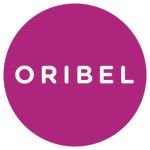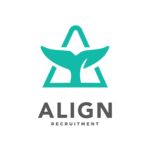Tips for Sending CV
When applying for a job, your CV plays a crucial role in making a strong first impression on potential employers. To increase your chances of standing out from the competition and catching the attention of companies, here are some valuable tips for sending a compelling CV.
- Tailor Your CV to the Job: Customize your CV to align with the specific job requirements and qualifications stated in the job posting. Highlight relevant skills, experiences, and achievements that showcase your suitability for the position. A targeted CV demonstrates your genuine interest and makes it easier for employers to see your value.
- Highlight Key Skills and Achievements: Clearly emphasize your key skills, accomplishments, and qualifications that directly relate to the job. Use bullet points and concise language to make these points easily scannable for employers. Quantify your achievements whenever possible to provide measurable evidence of your capabilities.
- Keep it Clear and Concise: Ensure your CV is well-structured and easy to read. Use a professional and clean format with clear headings for each section. Avoid lengthy paragraphs and focus on presenting information in a concise and organized manner. Use bullet points to highlight key details and make the CV visually appealing.
- Showcase Relevant Experience: Highlight your relevant work experience, internships, or projects that demonstrate your expertise in the field. Focus on accomplishments and responsibilities that directly relate to the job you are applying for. Include specific examples of how you contributed to projects, solved problems, or achieved notable results.
- Include a Personal Statement: Consider including a brief personal statement at the beginning of your CV. This section should summarize your professional background, career goals, and what you can bring to the company. Keep it concise and engaging to grab the attention of employers right from the start.
- Proofread for Errors: Thoroughly proofread your CV to ensure it is free from spelling, grammar, and formatting errors. Mistakes can create a negative impression and imply a lack of attention to detail. Take the time to review your CV multiple times, and consider asking someone else to proofread it as well.
- Use Keywords: Incorporate relevant keywords throughout your CV to optimize it for applicant tracking systems (ATS) used by many companies. These systems scan CVs for specific keywords related to the job. Review the job description and company website to identify relevant keywords and include them naturally in your CV.
- Include a Professional Cover Letter: In addition to your CV, consider writing a tailored cover letter for each application. Use this opportunity to express your interest in the position and company, and explain how your skills and experiences align with their needs. A well-crafted cover letter can complement your CV and showcase your motivation.
- Provide Updated Contact Information: Ensure your contact information, including your email address and phone number, is accurate and up to date. Employers need a reliable way to reach out to you for potential interviews or follow-ups. Double-check that your contact details are prominently displayed on your CV.
- Follow Application Instructions: Carefully read and follow the application instructions provided by the company. Submit your CV in the requested format (e.g., PDF or Word), along with any additional documents or portfolio samples if required. Adhering to instructions demonstrates your attention to detail and respect for the application process.
Tips Interview
Interviews are critical moments in the job application process, as they provide an opportunity for employers to assess your skills, qualifications, and fit for a particular role. To help you ace your next interview, we have compiled a list of ten essential tips that will guide you towards success. By following these strategies, you can boost your confidence, present your best self, and increase your chances of securing the job you desire.
- Research the Company: Thoroughly research the company you’re interviewing with. Familiarize yourself with their mission, values, products/services, recent achievements, and any news or updates. This knowledge will demonstrate your interest and enthusiasm for the position, and enable you to ask informed questions during the interview.
- Understand the Job Description: Carefully review the job description to identify the key skills, qualifications, and responsibilities required for the role. Make a list of relevant examples from your own experiences that align with these requirements. Being well-prepared will enable you to showcase your suitability for the position.
- Practice Common Interview Questions: Practice answering common interview questions beforehand to refine your responses. This will help you articulate your thoughts clearly and concisely. Consider practicing with a friend or family member, or even recording yourself to evaluate your delivery and body language.
- Prepare Your Own Questions: Prepare a list of thoughtful questions to ask the interviewer. This demonstrates your interest in the company and the role, and allows you to gather additional information to help you make an informed decision if an offer is extended. Asking insightful questions can also leave a positive lasting impression.
- Dress Professionally: Dress professionally and appropriately for the interview, based on the company’s dress code. It’s better to be slightly overdressed than underdressed. Your appearance should reflect your seriousness and respect for the opportunity.
- Showcase Your Accomplishments: During the interview, highlight your accomplishments and relevant experiences that showcase your skills and expertise. Use specific examples to demonstrate your abilities and how you have added value in previous roles. Quantify your achievements whenever possible to provide tangible evidence of your capabilities.
- Display Confidence and Enthusiasm: Project confidence during the interview by maintaining good eye contact, sitting up straight, and speaking clearly. Showcase your enthusiasm for the position and the company. A positive attitude can leave a lasting impression on the interviewer.
- Be Mindful of Non-Verbal Communication: Non-verbal communication, such as body language and facial expressions, can significantly impact how you are perceived. Maintain good posture, smile genuinely, and use appropriate gestures to convey your interest and engagement. Active listening and nodding to show understanding can also build rapport.
- Address Weaknesses Positively: When discussing your weaknesses or areas for improvement, frame them in a positive light. Emphasize how you have worked to overcome these challenges or how you are actively seeking opportunities to grow and develop. This shows self-awareness and a commitment to personal and professional improvement.
- Follow Up with a Thank You Note: After the interview, send a personalized thank-you note to express your appreciation for the opportunity to interview. Use this opportunity to reiterate your interest in the position and highlight key points from the conversation. A well-crafted thank-you note can leave a positive impression and distinguish you from other candidates.
- Company: Oribel Pte. Ltd
- Position: International Sales & Marketing Manager
- Salary: SGD 2.000 - SGD 5.700
- Region: Paya Lebar
- Type of Work: Full-Time
- Company: China Communications Construction Company Limited (Singapore Branch)
- Position: Public Relations Officer (pro)
- Salary: SGD 5.500 - SGD 6.700
- Region: Tampines
- Type of Work: Full-Time
- Company: PERSOLKELLY Singapore Pte Ltd (Formerly Kelly Services Singapore Pte Ltd)
- Position: Project Manager (regulatory Affairs ) 1 Year Contract Extendable
- Salary: SGD 5.000 - SGD 6.500
- Region: East
- Type of Work: Full-Time
- Company: EA RECRUITMENT PTE LTD
- Position: Admin Coordinator (logistics / East / 5 Days)
- Salary: SGD 2.400 - SGD 2.800
- Region: East
- Type of Work: Full-Time
- Company: Align Recruitment Pte Ltd
- Position: Retail Leasing Director (mall & Outlets, Projects, Facilities, Retail Mnc)) )
- Salary: SGD 9.000 - SGD 13.000
- Region: North, North-East, West
- Type of Work: Full-Time
- Company: EA RECRUITMENT PTE LTD
- Position: Event Specialist / Executive (mnc / 5 Days)
- Salary: SGD 4.000 - SGD 4.500
- Region: East
- Type of Work: Full-Time
- Company: EA RECRUITMENT PTE LTD
- Position: Operations Executive (airfreight Export / East / Mnc)
- Salary: SGD 3.000 - SGD 3.800
- Region: East
- Type of Work: Full-Time
- Company: Search Index Pte Ltd
- Position: Customer Service Executive (medical Assistance / Perm) (ac) #urgent
- Salary: SGD 3.100 - SGD 3.300
- Region: Changi
- Type of Work: Full-Time
- Company: RecruitFirst Pte. Ltd
- Position: Digital Customer Service, Insurance Firm (up To $3600 + Bonus, Eunos)
- Salary: SGD 2.600 - SGD 3.600
- Region: East
- Type of Work: Full-Time
- Company: JTE Recruit Pte Ltd
- Position: Sales Engineer
- Salary: SGD 3.800 - SGD 4.800
- Region: East
- Type of Work: Full-Time







